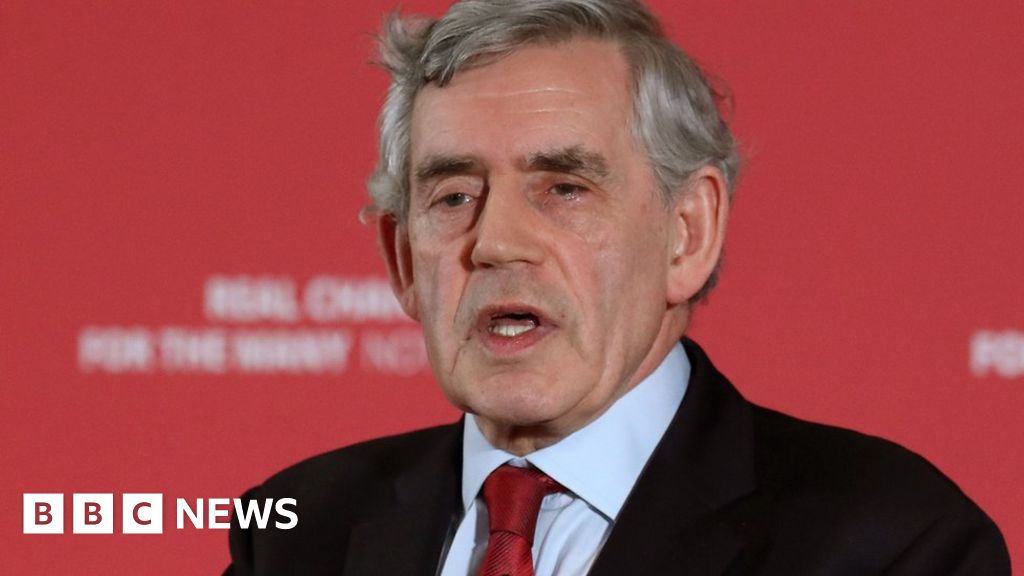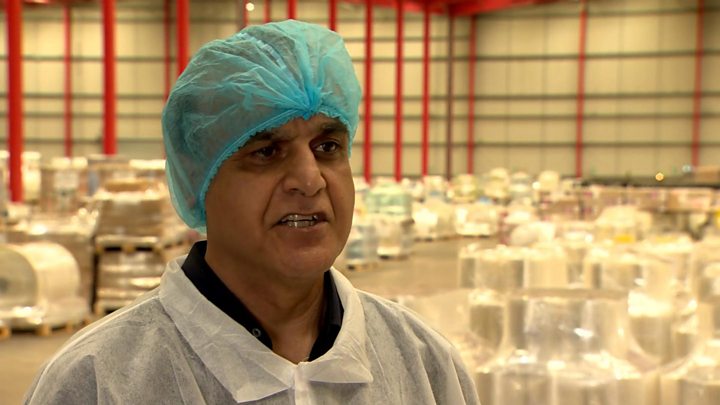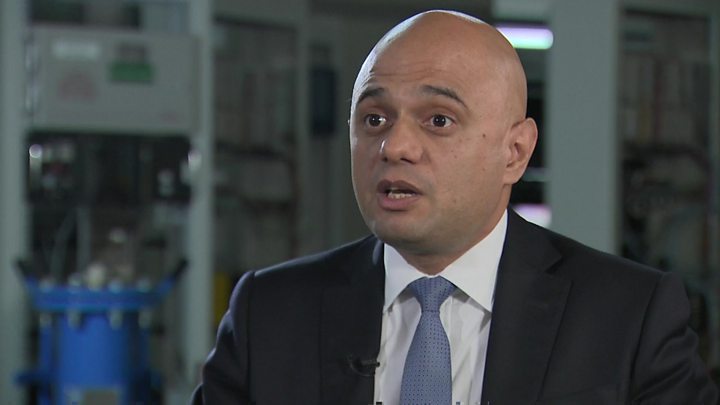
Gordon Brown has warned that under Boris Johnson the union of England, Scotland, Wales and Northern Ireland is "sleepwalking into oblivion".
Writing in the Observer, Mr Brown blamed "destructive, nationalist ideology" and said the ideal of Britishness as tolerant "could not survive" a no-deal Brexit.
"We are, at best, only a precariously united kingdom," Mr Brown wrote.
He also criticised the prime minister's new adviser, Dominic Cummings.
It comes after Mr Johnson travelled to all four parts of the UK in his first few weeks in office, with No 10 saying he was a "passionate believer in the power of the Union".
Mr Johnson has said the UK will leave the EU on the current deadline of 31 October, whether a Brexit "divorce" deal - which sets out how Britain leaves - is agreed in time or not.
Mr Brown criticised Mr Johnson's government, which he said was driven "not by the national interest but by a destructive, populist, nationalist ideology".
"We must recognise that nationalism is now driving British politics," he wrote.
Under Mr Johnson's premiership, claimed Mr Brown, the UK is "devoid of a unifying purpose powerful enough to hold it together and to keep four nationalisms - Scottish, Irish, English, and also a rising Welsh nationalism - at bay.
"What is most worrying is not just that so many think the union will end but how, at least for now, so few appear to care."
A recent opinion poll indicated that most Conservative Party members prioritise leaving the EU over preserving the union.
Some 63% of respondents said they would rather Brexit took place even if it led to Scottish independence - 59% expressed the same view about Brexit leading to Northern Ireland leaving the UK.
Speaking later on Sunday at a Fringe by the Sea event in North Berwick, Mr Brown repeated his assertion a no-deal Brexit would be a "complete disaster", arguing it would place new strain on the union.
He also said withholding UK contributions to the EU in the event of a no-deal Brexit would be the "economic equivalent of declaring war" and create hostility between the UK and Europe.
He called for a constitutional convention to consider the future of the whole UK and a new senate of the nations and regions to replace the House of Lords.
'Must stop no deal'
In his Observer article, Mr Brown also attacked the style of Mr Johnson's cabinet, saying the UK's approach to leadership now included "choosing an enemy and accusing opponents of treason".
He described the PM's new adviser, Mr Cummings, as someone who "depicts the House of Commons as the enemy in a 'people v parliament' election".
Mr Brown also criticised shadow chancellor John McDonnell, who he said "fell into the nationalist trap" over comments made earlier this week about a future Labour government not blocking a second Scottish independence referendum.
Mr Brown added that Britain needed to rediscover virtues such as empathy and co-operation - and that the idea of a Britishness, which is tolerant, inclusive and outward-looking, "could not survive" a no-deal Brexit.
"To prevent the rise of dysfunctional nationalism, the first step is to stop no deal in its tracks," he added.
https://www.bbc.com/news/uk-politics-49309113
2019-08-11 16:28:53Z
CBMiLWh0dHBzOi8vd3d3LmJiYy5jb20vbmV3cy91ay1wb2xpdGljcy00OTMwOTExM9IBMWh0dHBzOi8vd3d3LmJiYy5jb20vbmV3cy9hbXAvdWstcG9saXRpY3MtNDkzMDkxMTM

